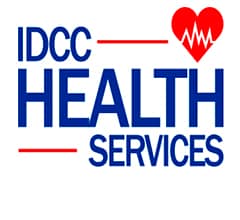Imagine walking through the bustling streets of Brooklyn, heart pounding, not from the city’s lively rhythm, but from nerves about your upcoming cardiology appointment. “What’s going to happen? Will there be tests? How should I prepare?” All valid questions! Join me on a journey as we demystify what to expect at your first cardiology appointment.
Consult the best cardiologist in Brooklyn today!

What Does a Cardiologist Do on Your First Visit?
Visiting a cardiologist for the first time can be a significant step towards understanding and managing your heart health. Here’s what you can expect:
1. Initial Discussion: History Taking
- Symptom Discussion: Your cardiologist will start by talking to you about your symptoms and medical history. This conversation helps them get a comprehensive understanding of your health background and current issues.
2. Physical Examination
- Heart and Blood Vessel Check: The doctor will conduct a physical examination, focusing on your heart and blood vessels to identify any signs of heart disease.
- Blood Pressure Measurement: Your blood pressure will be taken as part of the initial assessment.
3. Initial Tests
- 12-Lead ECG: You will likely undergo a simple 12-lead ECG. This involves placing stickers on your limbs and chest, which are connected to a machine that records your heart’s electrical signals.
4. Additional Tests (If Necessary)
Depending on the initial findings, your cardiologist may order several other tests:
- Stress Test: You may be asked to exercise on a treadmill or bike to monitor your heart’s response to physical activity.
- Cardiac Ultrasound (Echo): A probe will be used to examine the structure and function of your heart.
- 24-Hour ECG: You may wear a portable ECG device that records your heart’s activity over 24 hours.
- 24-Hour Blood Pressure Monitor: This device measures your blood pressure multiple times throughout the day.
- Blood Tests: Tests may be ordered to check your kidney function, glucose levels, and cholesterol levels.
5. Follow-Up
- Results and Treatment Plan: After all the tests are completed, which might not all be on the same day, your cardiologist will have a clear understanding of your condition and will discuss the best treatment options with you.
By the end of your first visit, you should have a detailed plan for managing your heart health.
